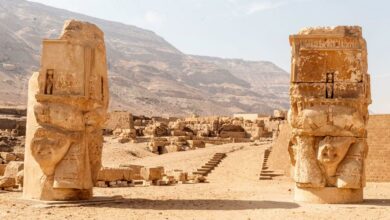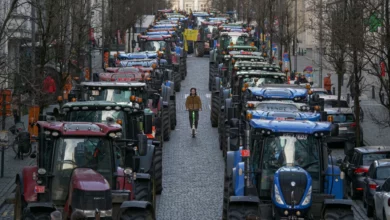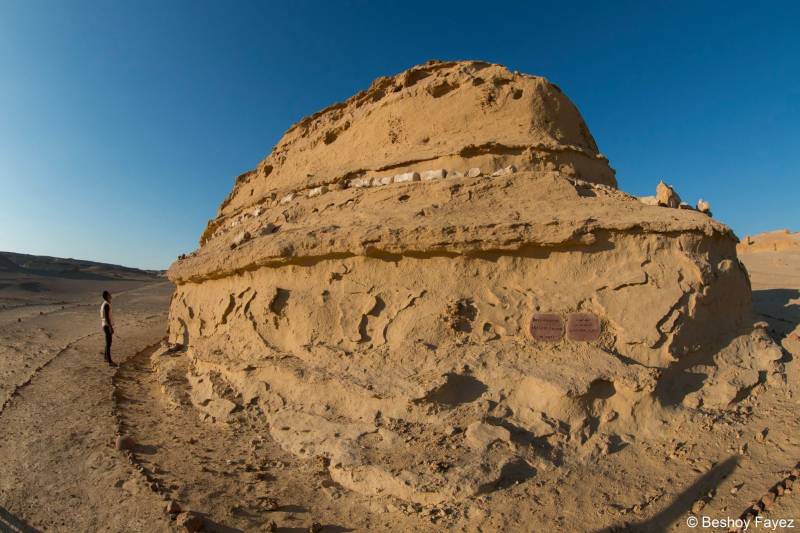Many residents of Fayoum consider their governorate a microcosm of Egypt. With Bedouins, farmers and urban dwellers, the place offers glimpses of different Egyptian social groups.
Villages west of Fayoum experience a phenomenon that is representative of a growing reality across many parts of the country: water shortages.
Water scarcity increases significantly during the hot summer months when it is felt in two different ways: dwindling drinking water supplies and declining irrigation water.
Sporadic drinking water shortages have meant that some communities have had to dig new wells or pay high prices for water deliveries.
On 27 June, the villagers of Sanhur launched a protest after not receiving drinking water for days. In the nearby village of Abuxta, people explain that police were afraid to face crowds who set tires on fire and blocked a main highway leading past their village. One farmer recounts that as soon as the demonstrations started, the water was turned on again.
In the nearby district of Abshawey, some farmers have agreed to share their drinking water after supplies fell by nearly one half. Under their new agreement, each village has a day’s access to nearby water supplies on an alternating basis.
“The problem has been going on for years,” says Saber Atta, an independent MP for the city of Fayoum. “The municipality has tried to address the problem but has produced few results on the ground. As a result, some villages receive running water as little as two hours a day.”
In the nearby village of Abuxta there is an even more serious problem: irrigation water shortages.
Ahmed Ali has worked the same plot of land since his youth, yet only in the past few years has he faced any sort of water deficits. Ali used to grow a variety of fruits in his field, including apricots and grapes. Due to water shortages the farmer has slowly switched to other fruits that consume less water like mangoes, olives, prickly pears and a variety of citrus fruits. Many of Ali’s neighbors have moved away, leaving their old lands parched and covered in yellow grass and thorns under barren fruit trees.
“Instead of stealing they move up to the mountain and work as day laborers. What else can they do?”asks Mostafa, another farmer who also grew mangoes, grapes and oranges for years on his nearby land in Abuxta. His land is now covered with prickly pear, the only tree that will survive with little water.
Mostafa’s field is a tiny plot of land. He used to water it every day for half an hour from the district’s water source, which would suffice for the entire field. For the past 90 days, not a drop of water has reached him from the area’s canals that remain dry.
To solve his water crisis, Mostafa purchased used motor parts for LE1100 and had a friend assemble the machine. A pipe stretching some meters into the ground cost him another LE400. But if government officials catch him he will be fined for digging for water without authorization; a permit, on the other hand, will cost him a hefty bribe.
Clenching a solitary bunch of grapes on one of his barren vine, Mostafa explains that the few plants he has kept alive in his garden are watered with jerrycans, which he purchases from a distant location. Like many of his neighbors, Mostafa’s farming days here are coming to an end.
Abuxta lies at the end of the Nile’s water distribution line that reaches the district. Village residents explain that people up the canal have exceeded their share of water in recent years, such that nothing reaches those at the bottom of the canal in the end.
Mohamed, another Abuxta farmer, says he doesn’t know what is causing the shortages. “We’ve asked the people in charge, and we are sick of them,” he complains. “Every time government representatives come to visit us suddenly the water flows again, but as soon as they get into their cars, the water is gone.”
Meanwhile, big landowners illegally extract water from underground aquifers while paying off the guards that oversee water distribution, thus taking more than their share of from the main water source. Their connections with local authorities and police officials protect them from being punished.
“The guards in charge of water distribution at the river are paid every month by big farmers,” a local resident explains. “They have stolen our rights. And any incorruptible government officials are immediately removed from their positions.”
For his part, Atta insists that people who prevent water from reaching other farmers should be imprisoned, adding that while garbage is piling up inside the canals there is no effort by the Ministry of Water and Irrigation to ensure that water reaches those at the end of the line.
Fed up with corruption and ineffective state officials, some farmers have taken matters into their own hands. In a nearby village inhabitants take shifts guarding the canal to ensure that water levels are not tampered with over night. This has proven the only recourse for the villagers to guarantee a steady flow of water.
For other farmers however drying fields means the price of produce in local markets will rise. The farmers of Abuxta are hit twice, as they lose their sources of income and now they pay higher prices for the very fruit they used to grow on their own land.




